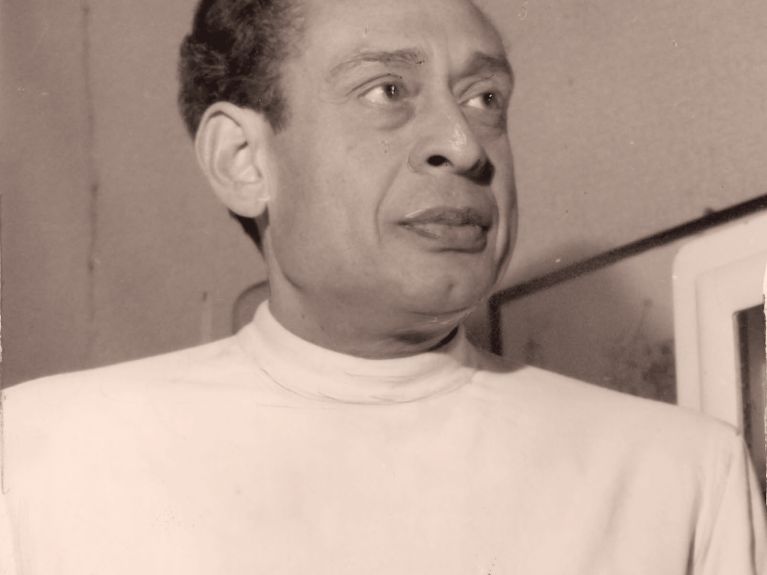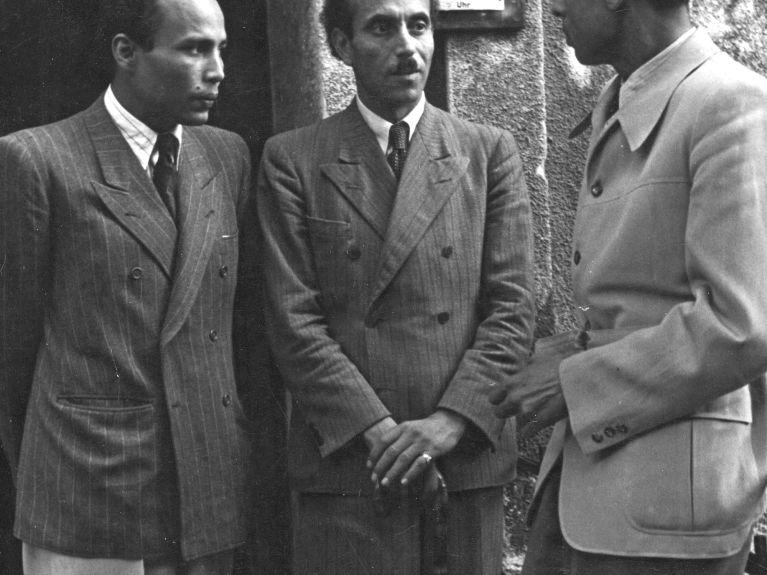The Arab Schindler
Mod Helmy was a brave man. A Muslim himself, he saved the lives of several Jews in Nazi Germany. Israeli Igal Avidan traces his extraordinary story.

Mod Helmy was a doctor, a friend and even a life saver to his Jewish patients. During the time of the Nazi regime the Egyptian, who had remained in Berlin following his studies there, helped several Jews. He showed great bravery and creativity in doing so. Mod (Mohamed) Helmy’s exceptional story slid into obscurity for a long time, but now Berlin-based Israeli journalist Igal Avidan has tracked down contemporary witnesses and documents and has written a book about the Muslim who helped Jews during the Holocaust.
In 2013 the Holocaust Remembrance Center Yad Vashem named Mod Helmy as belonging to the “Righteous Among the Nations” – he is the only Arab to date to have received this honour. The title was only conferred in late 2017, when one of Helmy’s nephews agreed to accept the medal and deed of honour from the hands of the Israeli ambassador in Berlin.
Mr. Avidan, when did you first hear about Mod Helmy?
In 2013 I read in the newspaper that the Israeli Holocaust Remembrance Center Yad Vashem in Jerusalem was bestowing the honorary title of “Righteous Among the Nations” on an Arab for the first time. Mod Helmy was being honoured for hiding a Jewish woman in his home during the Holocaust. I found that fascinating. That was the start of what would turn into a large research project.

In your book you also write about a family that Mod Helmy helped a great deal.
Yes, Celine Rudnik was a Jewish patient at Helmy’s private surgery. At the time it had become almost impossible for Jews to find a doctor. When Helmy found out that the Gestapo was looking for Celine Rudnik, he introduced her to an acquaintance, in whose house she could hide. He later also helped her granddaughter, Anna. It’s an unbelievable story. He didn’t hide Anna away in secret, but openly employed her as a supposedly Muslim doctor’s assistant in his practice. This went well for a very long time – presumably the Gestapo couldn’t imagine an Arab of all people supporting and hiding a Jew.
The research was one big puzzle and a bit like detective work.
Was that not risky for Mod Helmy? Why did he do it?
He was a conscientious person. He knew Anna’s family; they were his patients, so he couldn’t let them down. Even though it was dangerous for him. When it surfaced that Anna was Jewish, he was taken in by the Gestapo. During the interrogation he lied cleverly and was able to surmise what the Gestapo could know and what they couldn’t know. It worked, and the Gestapo let him go. But Helmy had one more request: for Anna’s mother, who was on her way to a concentration camp, to be freed. Just imagine that! Instead of going into hiding after the interrogation, glad to be safe, Helmy made another request on behalf of a Jew. That is incredibly brave and attests to his true character.
Mod Helmy was never properly acknowledged during his lifetime. He died in 1982. How difficult was it to find contemporary witnesses?
It was very difficult indeed. I used various sources and placed an ad in a Berlin newspaper, among other things. I was even able to find a patient and a former work colleague of Mod Helmy’s in this way. The research was one big puzzle and somewhat like detective work. There are documents I read ten times, and it was only on the eleventh reading that I noticed a tiny detail that then led me to the next piece of the puzzle. And I was delighted with each new piece I found.

What meaning can this story have for us today?
Mod Helmy provides a counterexample to the Mufti of Jerusalem, who time and again is cited as a Nazi henchman. I hope that with the figure of Mod Helmy, we might see a dialogue develop between Jews and Muslims in Germany, too. This story may also make the topic of the Holocaust interesting for young migrants from the Middle East. Mod Helmy could become a positive role model, a figure of identification for Muslim youths.
Interview: Viktoria Kleber
